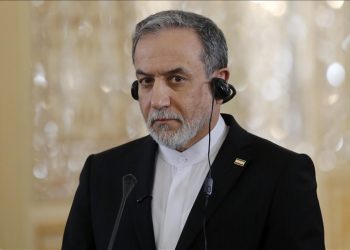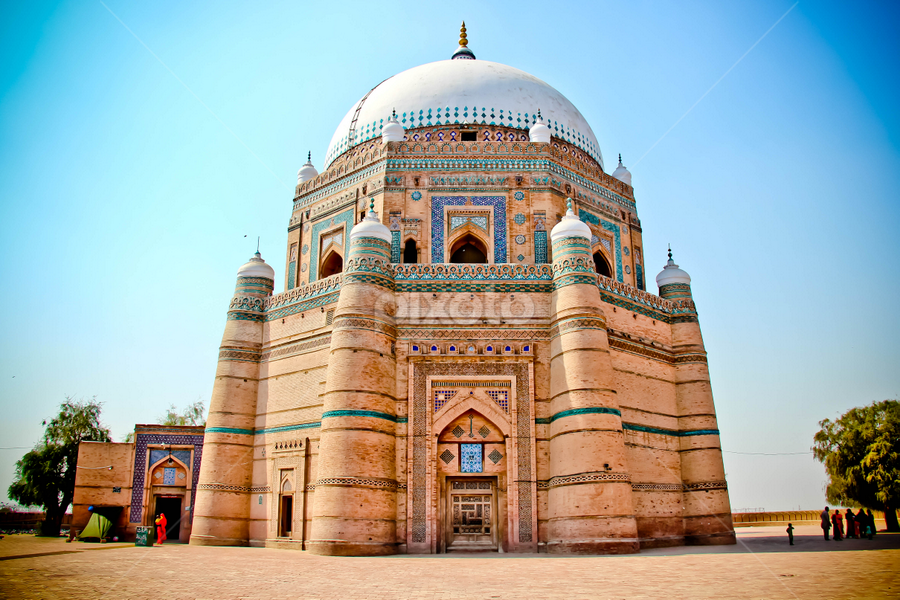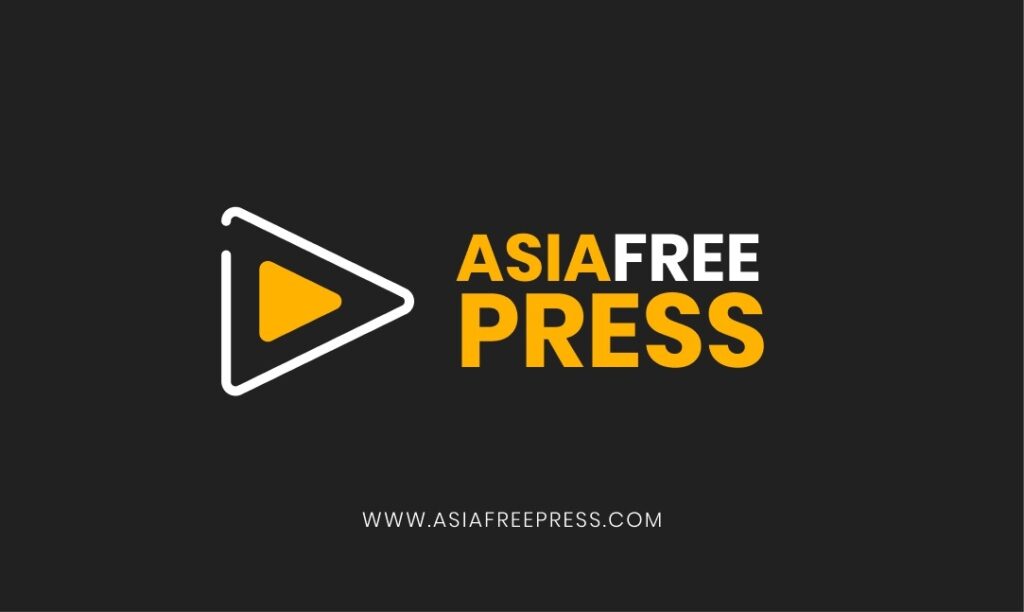The aftermath of the Red Fort blast has exposed a new and disturbing pattern in Indian governance. It is not only about counter-terror operations. It is not about law and order. It is about power, perception and the strategic dismantling of the intellectual fabric of an occupied territory. In Indian-occupied Jammu and Kashmir (IIOJK), the state has now crossed a line: those who heal the bodies of others are fighting to save their own lives.
Doctors, professors, medical students and health professionals, people who serve society, sustain life and uphold humanitarian principles, are now the subjects of arrests, detentions, professional bans and public vilification. Their wounds are not physical. Their wounds exist in the mind, in the fear of uncertainty, in the trauma of being criminalized for their identity. These wounds will not heal through medicine. Only time, justice and dignity can heal them.
The chain of events after the Red Fort blast is not random. It is structured and calculated. It fits within a long-standing Indian strategy of coercive governance, identity securitization and occupation-based control.
When four doctors, including Dr Muzaffar Ahmad, Dr Adeel Ahmad Rather, Dr Muzamil Shakeel and Dr Shaheen Saeed, were removed from India’s National Medical Register on 15 November 2025, it was presented as a counter-terrorism decision. Dr. Adeel and Dr. Muzaffar were arrested under UAPA on 10 November 2025, while Dr Rayees Ahmad Butt from Pathankot was taken on 15 November without local police being informed. Others, including Dr Shaheen Saeed (Lucknow), Dr Sajad Malik (Pulwama), Dr Ahmed Mohiyuddin Saiyed (Hyderabad) and Dr Umar Mohammad (Kashmir), faced suspension, defamation and licensing bans, turning those who once healed society into survivors of state harassment. But the charges remain unproven. The evidence remains opaque. The process remains secretive. This is classic securitization theory: convert a professional group into a national security threat, then justify extraordinary measures against them.
This is how occupations function. When a state wants to maintain dominance over a contested territory, it targets not only militants or activists. It targets the intellectual class. It targets those who shape the community’s future. It targets professionals who possess skills, knowledge and social influence.
Every occupied region carries an intellectual property, its educated class, its thinkers, its medical professionals, its teachers. This is not just a human resource but also a form of strategic capital. If you weaken this capital, you weaken the society. You weaken its resilience. You weaken its ability to negotiate power. You weaken its ability to resist domination.
India understands this. That is why the very people who once stood as frontline saviors have now been turned into frontline victims after the blast. This is the destruction of intellectual property under the guise of national security. It is a form of structural violence. It is a tool of coercive statecraft. It is the intellectual equivalent of land dispossession.
The protest in Jammu against Muslim doctors and students admitted on merit shows how professional excellence itself is now criminalized. 42 of 50 MBBS students secured admission based purely on merit. Yet Hindutva groups labeled it “religiously imbalanced.” They demanded Hindu-only recruitment. They demanded policy changes. They demanded exclusion.
This is more than harm. It is an attempt to reshape the human resource landscape of an occupied territory. It aligns with the demographic engineering India began after August 2019. Now, instead of settling outsiders, the state is indirectly pushing locals out of skill-based sectors. If you cannot stop Kashmiris from being intelligent, you criminalize intelligence. If you cannot stop merit, you delegitimise merit. If you cannot prevent the rise of Kashmiri doctors, you arrest them, ban them and accuse them.
Doctors in IIOJK now live in the shadow of two wars. One war is professional, treating patients in a region where conflict trauma is a daily reality. The other war is existential, proving their innocence, defending their identity and hoping they are not the next names in an arrest memo.
This is not new. Engineers, journalists, scholars, academics and now doctors, the pattern is consistent. India is executing a deliberate strategy of cognitive occupation, a concept in IR that describes the suppression of intellectual agency in disputed regions. Attacking doctors weakens Kashmir’s healthcare, erodes trust, signals that identity trumps merit and disrupts knowledge transfer across generations. This is the dismantling of institutional memory. Occupations fear institutional memory because memory builds resistance. Doctors carry both memory and respect in society. To crush them is to crush social leadership.
The Red Fort blast provided the political moment the state needed. Securitization thrives during crises. Crises allow governments to bypass scrutiny, expand authority and justify extraordinary actions. Doctors became ideal targets: they embody Kashmiri excellence, defy stereotypes, network nationally and bolster the region’s soft power. Targeting them spreads fear, enforces silence and tightens control.
International law recognizes the duty of occupying powers to protect the cultural and intellectual resources of occupied regions. But India’s actions show the opposite. The strategy resembles colonization: remove local elites, replace them with loyalists and re-engineer the socio-political structure. This is not just political control. It is epistemic control, control over knowledge, skills and professional identity.
Kashmiri doctors now stand at a painful intersection. They hold degrees, not weapons. They carry stethoscopes, not explosives. They save lives, yet they are treated as threats. Their wounds are invisible. Their trauma is silent. Their suffering is political.Kashmir is not only losing doctors. Kashmir is losing its healers, its thinkers, its future. And that is the deepest wound of all.
The world must recognize that the assault on Kashmir’s doctors is not an isolated event. It is a chapter in a broader project: to dismantle the intellectual future of an occupied territory. And once the intellectual class is broken, the society follows.The aftermath of the Red Fort blast has exposed a new and disturbing pattern in Indian governance. It is not only about counter-terror operations. It is not about law and order. It is about power, perception and the strategic dismantling of the intellectual fabric of an occupied territory. In Indian-occupied Jammu and Kashmir (IIOJK), the state has now crossed a line: those who heal the bodies of others are fighting to save their own lives.
Doctors, professors, medical students and health professionals, people who serve society, sustain life and uphold humanitarian principles, are now the subjects of arrests, detentions, professional bans and public vilification. Their wounds are not physical. Their wounds exist in the mind, in the fear of uncertainty, in the trauma of being criminalized for their identity. These wounds will not heal through medicine. Only time, justice and dignity can heal them.
The chain of events after the Red Fort blast is not random. It is structured and calculated. It fits within a long-standing Indian strategy of coercive governance, identity securitization and occupation-based control.
When four doctors, including Dr Muzaffar Ahmad, Dr Adeel Ahmad Rather, Dr Muzamil Shakeel and Dr Shaheen Saeed, were removed from India’s National Medical Register on 15 November 2025, it was presented as a counter-terrorism decision. Dr. Adeel and Dr. Muzaffar were arrested under UAPA on 10 November 2025, while Dr Rayees Ahmad Butt from Pathankot was taken on 15 November without local police being informed. Others, including Dr Shaheen Saeed (Lucknow), Dr Sajad Malik (Pulwama), Dr Ahmed Mohiyuddin Saiyed (Hyderabad) and Dr Umar Mohammad (Kashmir), faced suspension, defamation and licensing bans, turning those who once healed society into survivors of state harassment. But the charges remain unproven. The evidence remains opaque. The process remains secretive. This is classic securitization theory: convert a professional group into a national security threat, then justify extraordinary measures against them.
This is how occupations function. When a state wants to maintain dominance over a contested territory, it targets not only militants or activists. It targets the intellectual class. It targets those who shape the community’s future. It targets professionals who possess skills, knowledge and social influence.
Every occupied region carries an intellectual property, its educated class, its thinkers, its medical professionals, its teachers. This is not just a human resource but also a form of strategic capital. If you weaken this capital, you weaken the society. You weaken its resilience. You weaken its ability to negotiate power. You weaken its ability to resist domination.
India understands this. That is why the very people who once stood as frontline saviors have now been turned into frontline victims after the blast. This is the destruction of intellectual property under the guise of national security. It is a form of structural violence. It is a tool of coercive statecraft. It is the intellectual equivalent of land dispossession.
The protest in Jammu against Muslim doctors and students admitted on merit shows how professional excellence itself is now criminalized. 42 of 50 MBBS students secured admission based purely on merit. Yet Hindutva groups labeled it “religiously imbalanced.” They demanded Hindu-only recruitment. They demanded policy changes. They demanded exclusion.
This is more than harm. It is an attempt to reshape the human resource landscape of an occupied territory. It aligns with the demographic engineering India began after August 2019. Now, instead of settling outsiders, the state is indirectly pushing locals out of skill-based sectors. If you cannot stop Kashmiris from being intelligent, you criminalize intelligence. If you cannot stop merit, you delegitimise merit. If you cannot prevent the rise of Kashmiri doctors, you arrest them, ban them and accuse them.
Doctors in IIOJK now live in the shadow of two wars. One war is professional, treating patients in a region where conflict trauma is a daily reality. The other war is existential, proving their innocence, defending their identity and hoping they are not the next names in an arrest memo.
This is not new. Engineers, journalists, scholars, academics and now doctors, the pattern is consistent. India is executing a deliberate strategy of cognitive occupation, a concept in IR that describes the suppression of intellectual agency in disputed regions. Attacking doctors weakens Kashmir’s healthcare, erodes trust, signals that identity trumps merit and disrupts knowledge transfer across generations. This is the dismantling of institutional memory. Occupations fear institutional memory because memory builds resistance. Doctors carry both memory and respect in society. To crush them is to crush social leadership.
The Red Fort blast provided the political moment the state needed. Securitization thrives during crises. Crises allow governments to bypass scrutiny, expand authority and justify extraordinary actions. Doctors became ideal targets: they embody Kashmiri excellence, defy stereotypes, network nationally and bolster the region’s soft power. Targeting them spreads fear, enforces silence and tightens control.
International law recognizes the duty of occupying powers to protect the cultural and intellectual resources of occupied regions. But India’s actions show the opposite. The strategy resembles colonization: remove local elites, replace them with loyalists and re-engineer the socio-political structure. This is not just political control. It is epistemic control, control over knowledge, skills and professional identity.
Kashmiri doctors now stand at a painful intersection. They hold degrees, not weapons. They carry stethoscopes, not explosives. They save lives, yet they are treated as threats. Their wounds are invisible. Their trauma is silent. Their suffering is political.Kashmir is not only losing doctors. Kashmir is losing its healers, its thinkers, its future. And that is the deepest wound of all.
The world must recognize that the assault on Kashmir’s doctors is not an isolated event. It is a chapter in a broader project: to dismantle the intellectual future of an occupied territory. And once the intellectual class is broken, the society follows.



















